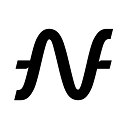P2P Energy Trading on the SunContract Platform
Energy Trading 101
Peer-to-peer energy trading is a concept whose foundation lies in the idea of a peer-to-peer economy. In short, a sharing economy. As solar and battery storage systems increase, the concept of a P2P energy trading system is becoming more and more popular. This system, which is at the core of the SunContract platform, allows consumers to take advantage of other users who produce more energy than they need.
Any producer on the SunContract trading platform can become a trader and offer their surplus electricity on the platform to others. This makes it easier for other consumers to purchase electricity based on the renewable energy source of their choice. Also, prices of electricity can be lower than those of conventional energy suppliers. Available on the platform at the moment is renewable energy from the sun, cogeneration as well as hydro.
The main advantages are:
- no middle man — people make deals on their own terms
- everyone saves money
- transparent dealings directly with other consumers
As pictured above, before, producers would have to sell their electricity directly to an energy supplier (middleman) who would bump up the price and sell it to the end consumer at a profit. With the SunContract platform, we have made the need for a middleman obsolete by directly connecting consumers and producers in an open energy market for them to trade electricity with each other.
A new idea is that electricity is a commodity. People can choose how they use it and who they sell it to. P2P energy trading is an efficient way of maintaining relatively competitive electricity prices in the wholesale market.
I mean, who wants to be a passive consumer subject to market rules? As new technologies emerge, society continues to identify potential sellers or buyers. This is already happening. Think of sites like Gumtree and eBay where users trade with others on their own terms.
P2P lets players:
- trade their solar energy to friends and family for free or at a discount
- Choose to buy solar energy from a neighbour, or support a local wind or solar farm
- Choose to source as much energy as possible from distributed rooftop solar systems or home battery banks, or even neighbours
For a program to fit the definition of ‘peer-to-peer solar energy’, users setting their own terms is the primary benefit. The most important one is price. Consumers set their price limit for example for no more than 25c/kWh from any source.
In this case, any producer may choose to sell electricity at that rate, or less. However, users will have to fall back to the SunContract platform electricity price if there are few sellers at a given time. This price is still competitive compared to other energy providers and offers users on the platform that guarantee that they will never go without electricity in their households. In order to provide this back up energy, SunContract has partnered with energy company SONCE in Slovenia — where the project deployment is currently in full swing.
So how does Blockchain relate to P2P energy trading?
Traditionally, to buy or sell power, traders need to draft contracts and communicate with each other directly. Many contracts for can get complicated. Traders call each other, send emails, or use an instant messenger. This is a time-consuming, inefficient and expensive process.
However, with the introduction of the blockchain, traders on the SunContract platform are able to trade directly and place bids for power and let sellers turn it into a trade and vice versa. This happens through the implementation of smart contracts, without the need for a central retailer.
Smart contracts are essentially transactions that are only completed after certain conditions are met. For example, if I wanted to buy power at 15¢ per kWh, the smart contract would only activate when a seller was willing to meet this condition and deliver the power. Additionally, payments are made daily to sellers of surplus electricity on the platform.
Blockchain technology offers companies like SunContract an opportunity to make significant cost-saving and process efficiencies which, in this era of an inefficient energy sector, are too compelling to ignore.
Thanks to the blockchain, we can now increase efficiency and reduce costs of buying and selling electricity. More revolutionary is blockchain’s ability to incorporate smart meters in a blockchain, where computers could automatically reconcile demand and supply in real time to better balance the grid. While the technology is still in its infancy, it is clear to see the immense potential that the blockchain has to offer.
There you have it. P2P energy trading 101 for all our new community members. While P2P trading is the main focus of the SunContract platform, we have a lot more services we are working on launching in the near and long term future. Stay tuned.
Not on the platform yet? Register today and join us in the quest for a globally Open Energy Market.
